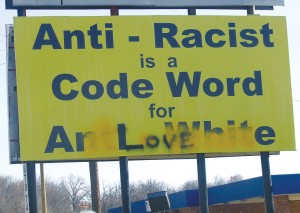I write all of the following as legal counsel for Mr. Chad Watkins. None of the information in this post is privileged, of course. Rather, it is information that needs to be known so that anyone who cares about this matter is fully informed about what is going on in Harrison, Arkansas. It’s not pretty.
Around October 15, 2013, a billboard reading “Anti-Racist is a Code Word for Anti-White” went up in Harrison on the 62/65 bypass. Because anyone with any sense would find that message stupid at best and disgusting at worst, and because most people don’t expect white-supremacist messaging to appear alongside the highway[foot]Even in Harrison.[/foot], the sign quickly drew national attention.
Early on November 29, according to police reports, a witness saw several people vandalizing the sign and called police. The witness provided the description and license number of a truck seen near the sign at the same time. On December 19, Chad Watkins of Harrison was arrested and charged with criminal mischief for allegedly having vandalized the sign, based solely on the description of his truck.
For whatever reason, the billboard’s owner, Claude West, has refused to say who rented the billboard. Rather, West and the billboard’s anonymous lessee have issued statements to the effect that the sign is about free speech, not about racism. Because West won’t release the name of the sign’s lessee, we’re left to dig around and see what we can piece together.
For instance, we know that Thomas Robb, national director of the Knights of the Ku Klux Klan, lives near Harrison in Zinc, AR, and uses a Harrison P.O. Box for his KKK-related business. We also know that Robb posted on his Facebook page, just days before the sign went up in Harrison:
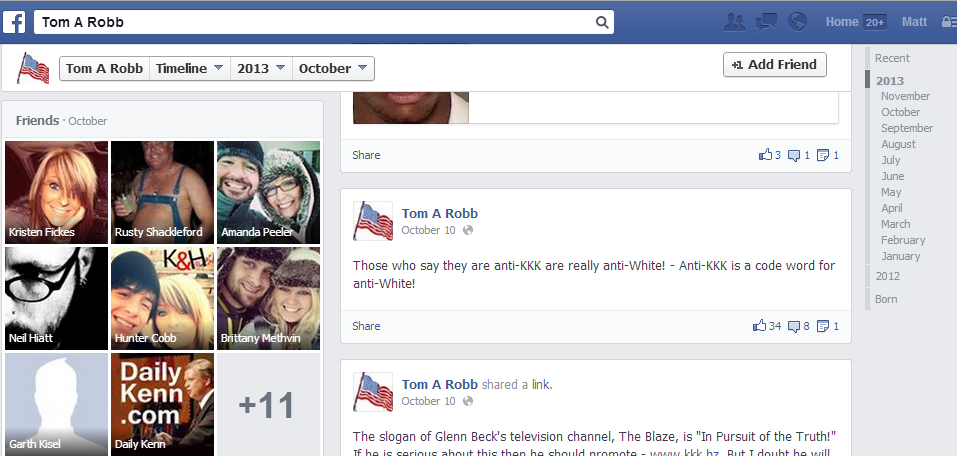
Once the sign went up, Robb was (predictably) vocal in his support of the message and of Mr. West.
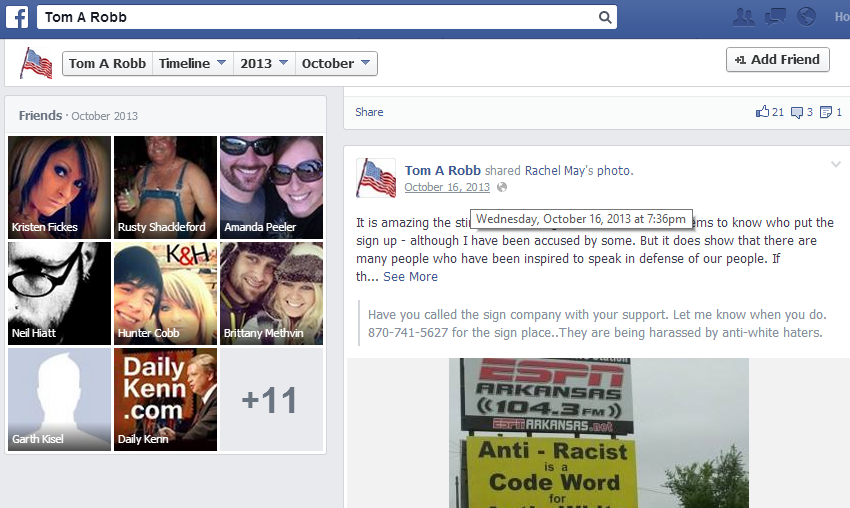
On their own, Robb’s series of Facebook posts probably don’t prove that he had anything to do with the sign. After all, while I had not previously heard the sign’s message before (mainly because you don’t often see it on the side of the road), it is apparently “a phrase often used by white nationalists, white separatists, white supremacists and their ilk.”[foot]It was coined by Timothy Gallaher Murdock of Dearborn Heights, Mich., a segregationist nut who included the phrase as part of his “Mantra.” http://www.splcenter.org/get-informed/intelligence-report/browse-all-issues/2013/fall/Following-the-White-Rabbit[/foot] So it would make sense that Robb would crow about the message, regardless of who put it there.
More telling, however, is this: around the 14:30 mark of his “This Is The Klan” video[foot]Yes, these videos are as insane and terrible as you would expect.[/foot], Robb referred to Chad Watkins by first name, saying that he didn’t want to use the last name so he wouldn’t get sued, but stressing, “we know it was you, Chad!” That video has since been removed, but here are screen shots showing title screen and the date the video originally went up:
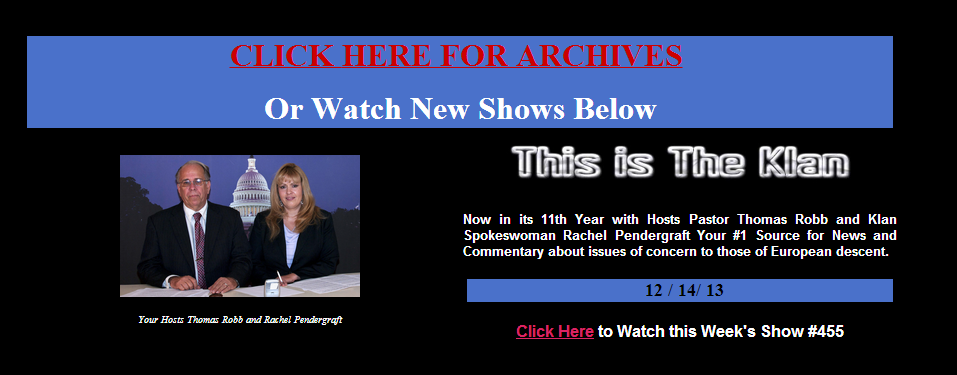
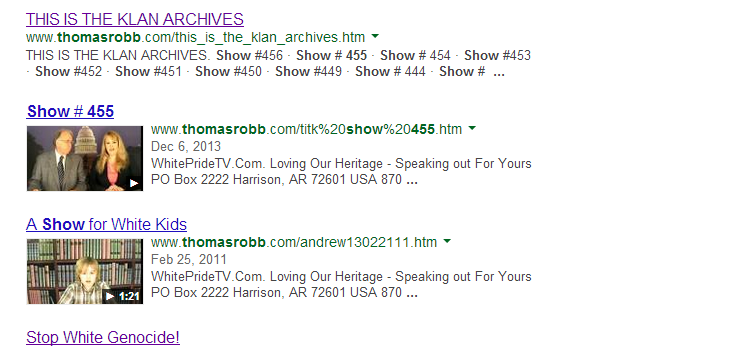
But wait…
If Chad Watkins wasn’t arrested until December 19, and the arrest warrant paperwork wasn’t submitted by City Attorney Van Younes until December 16 at the earliest (by Younes’ own admission), how could Thomas Robb have known Watkins’ name on December 6? After all, even journalists in Harrison, who were covering the billboard story as it unfolded and were actively seeking to figure out who was responsible, were unaware of Watkins’ alleged role until after Watkins was arrested.
Yet the head of the KKK knows the identity of a suspect more than a week before the city attorney has even made a charging decision and filed the necessary paperwork. How does this happen? The most likely — and by far the most unsettling — answer is that someone in the Harrison Police Department took it upon him- or herself to leak this information to Robb or to someone who funneled it to Robb.
If that seems far-fetched, you must be unfamiliar with Harrison, Arkansas.
Confederate flags aren’t hard to find and, until recently, neither was a moveable barbecue joint called Kracker’s. That smoker has since disappeared, unlike the Ku Klux Klan, which reinforced Harrison’s racist legacy. The leader of a Klan group called the Knights Party lives outside Harrison and maintains a post office box in the city.
[***]
“What do you want to do, run him out?” asked Mel Chaney, who lives south of Harrison. Chaney, who is white, said he had never seen any signs of racism in town. Neither had Bill Sloss, who is also white.
“How can it be a racist town if there’s no blacks here?” Sloss asked.
Others disagree. Rumors of discrimination persist here: a restaurant refusing to serve a black man, racial slurs that roll off people’s tongues.
“The reality is that Harrison remains today something of a gathering point for white supremacists,” said Mark Potok, a senior fellow at the Southern Poverty Law Center.
